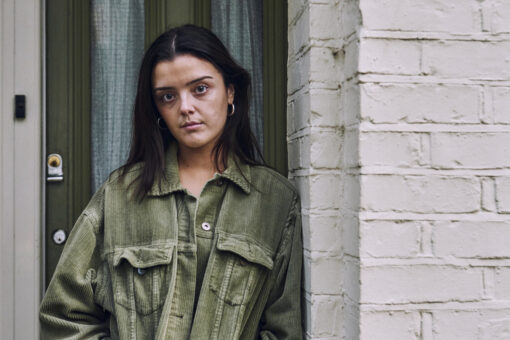How the Supreme Court’s decision will impact young people in the social work system

A lot has been said about the Supreme Court’s decision last week. One thing that doesn’t get talked about is the impact on young trans people in the social work system. But these young people will feel the effects of this decision more than most.
Imagine a 16-year-old who comes out at transgender. Their family is free to support that decision, or not. They can decide how to support that decision and what is in the best interest of their child. Noone is going to dictate what pronouns they use, what clothes get worn, which toilet gets used.
Now imagine a 16-year-old coming out in care, like I did when I was that age. Their family – their “corporate parent” – is a local authority. How do the professionals in their life react to their transition? They don’t have the same flexibility as a family. Every decision is under close scrutiny and must follow the law to the letter.
While the government tells us to wait for guidance and trans people are working out which bathroom they can use in public, young people in care may not even have access to a gender-neutral toilet at home. They will be wondering what support will be available to them and what barriers will be placed on their gender expression. And let’s be real, kids who are taken into care are much more likely than their peers to interact with the police, spend time in hospitals, to go to prison or need to access a refuge later in life. So many will run into these institutional barriers time and time again.
Social workers are too often risk averse at the best of times. With such a politically fraught atmosphere and unclear guidance, I wonder, will young people today even get the support to transition that I did? Will social workers and professionals feel like they are able to affirm a young person’s gender identity without running afoul of the law?
I was lucky when I came out about 15 years ago. Trans issues were gaining recognition and understanding, but there was none of the widespread hatred you see now. My local authority were supportive of my transition, which I’m really grateful for, but even with good intentions they made mistakes. I went through the proper legal process to change my gender on my passport. My local authority told me I had broken the law! As a 17-year-old, I had to educate them on how the law actually works. I’d be willing to bet that many young people will find themselves in a similar position in the coming weeks and months.
Years after I had transitioned, I discovered my local authority were still referring to me by my birth sex on my records. I was devastated. People would ask “what does it matter, it’s just a piece of paper?” But this is an official record, the state-sanctioned biography of your life. Imagine if your parents went through the family photo album and slightly edited every photo of you. You’d probably feel insulted as well, like you’re losing a little bit of your dignity. When the state has this much control over the narrative of your life, it’s essential it reflects who you really are.
And then there is the question of professionals who aren’t supportive in the first place. Obviously, the staff at my care home knew I had transitioned, but I would get upset when they would share this information with other professionals, unnecessarily. This is confidential information, according to the gender recognition act, but they would argue they needed to know because of safeguarding. A lot can be excused “because of safeguarding”. Often this language holds an implication that trans people are more predatory or dangerous, echoing the treatment of gay men in the past. I worry that professionals with these views will be emboldened and enabled by the supreme court decision.
I’m not surprised more people aren’t talking about the impact of this decision on kids in the social work system. It’s typical for them to be ignored. People keep asking Kier Starmer about his definition of a woman. If I had the opportunity, I’d ask him a different question: what would you do if one of your children was trans? This might seem like a hypothetical question, but it’s not. People like me, who grew up in care, we are children of the state. And that means Keir Starmer is our ultimate corporate parent. If more politicians took their role as corporate parents seriously, if they approached every decision thinking about how it will affect the children and young people who most rely on them, I think we would have better services not just for those children, but for everyone.
If you are affected by the Supreme Court decision, or you would like to support someone who is, the following resources might be helpful.
Switchboard, an LGBTQ+ helpline
Not A Phase, a charity with a mission to support and uplift the lives of trans+ adults
Genderered Intelligence, a charity that works to increase understanding of gender diversity and improve the lives of trans people